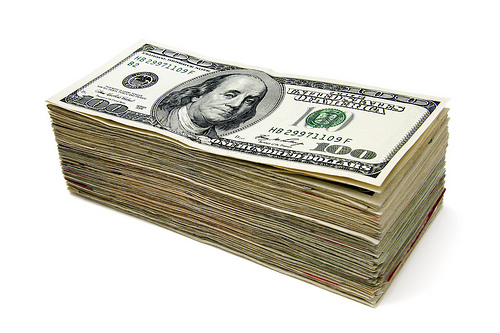Economy Watch: Consumers Constrained
It was clearly a nervous springtime for U.S. consumers, since their spending was at its weakest pace since the dim days of the summer of 2009--flat in May, or down 0.1 percent when inflation is taken into account, according to the U.S. Department of Commerce.
June 28, 2011
By Dees Stribling, Contributing Editor
It was clearly a nervous springtime for U.S. consumers, since their spending was at its weakest pace since the dim days of the summer of 2009–flat in May, or down 0.1 percent when inflation is taken into account, according to the U.S. Department of Commerce. Moreover, the month-over-month trend in consumer spending in April was adjusted downward to a 0.1 percent loss after inflation.
Unnervingly, spending was down not only for households with less than $50,000 income a year, for whom the elevated price of gas in the spring was a pressing problem. Spending was also down for Americans making $50,000 to $100,000 per annum and even for those clearing in excess of 100 grand a year.
This spring’s slowdown in consumer spending is a break from the pattern of increased spending since early 2010–generally a good trend, considering how much of the economy really amounts to trips to the store. The question now is whether the springtime declines are hiccoughs on the road to consumer recovery or something more permanent. With any luck the dropping price of gas (averaging $3.63 a gallon now and falling) will encourage consumers to buy something other than gas.
Income Barely Rises in May
The Bureau of Economic Analysis also reported on Monday that U.S. personal income increased $36.2 billion, or 0.3 percent, and disposable personal income increased $29.2 billion, or 0.2 percent, in May. But adjust that for inflation and after-tax incomes were only up 0.1 percent, hardly enough to keep up with the price of gas (before it started falling).
As consumers grew sour on the economy, their savings saw an uptick. The BEA said that personal saving–deposable personal income less outlays–was $591.1 billion in May, compared with $568 billion in April, or 5 percent of disposable income, compared with 4.9 percent.
However, some kinds of income have been increasing robustly in recent months, including rental income, as the multifamily rental market sees more demand for what it’s selling–namely, a place to live that isn’t yoked to a mortgage. Rental income was up $3.3 billion in May month-over-month and up $2.9 billion in April, following a much larger monthly spike of $8.2 billion in March.
Roll That Greek Debt Over?
Euro-financiers, still very much vexed by the prospect of a Greek default, are reportedly receptive to a suggestion by French banks that much of the Greek debt be rolled over by private creditors. But governments and other organizations pushing the idea will have to persuade bondholders to do so voluntarily, or not at all.
The Greek parliament votes on Wednesday about new austerity measures for the country, so that Greece can collect more bailout money. Optimism about approval of the austerity–that is, optimism among non-Greeks who don’t have to live with it–seemed to be the prevailing mood on Monday, but the nature of the Greek debt crisis is such that the prevailing mood could swing 180 degrees in the blink of the public eye.
Wall Street bounced roughly as high on Monday as it dropped on Friday, with the Dow Jones Industrial Average gaining 108.98 points, or 0.91 percent. The S&P 500 advanced 0.92 percent, while the Nasdaq was up 1.33 percent.








You must be logged in to post a comment.